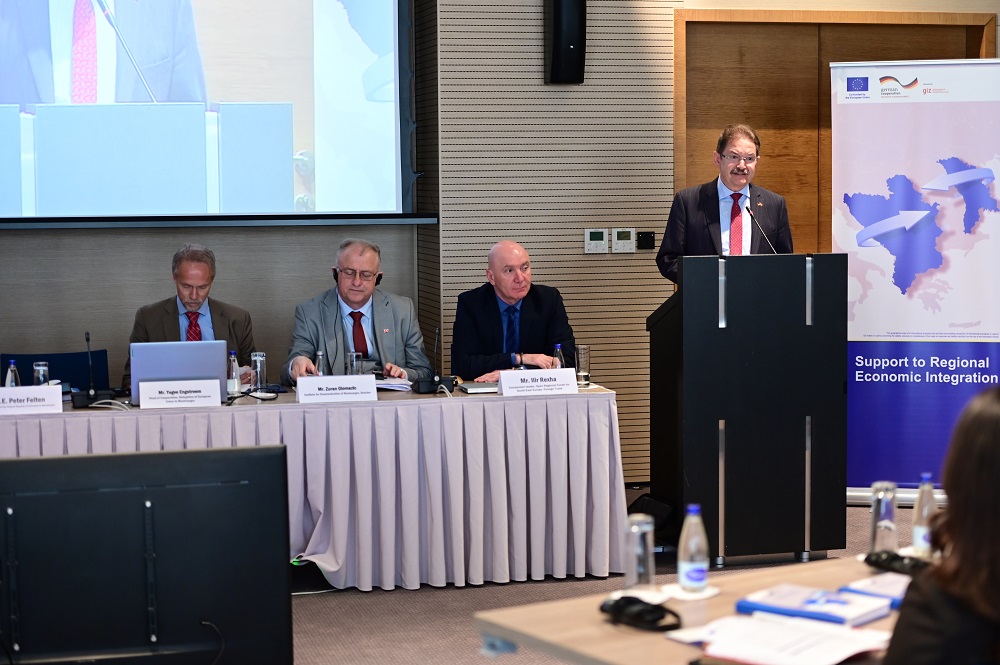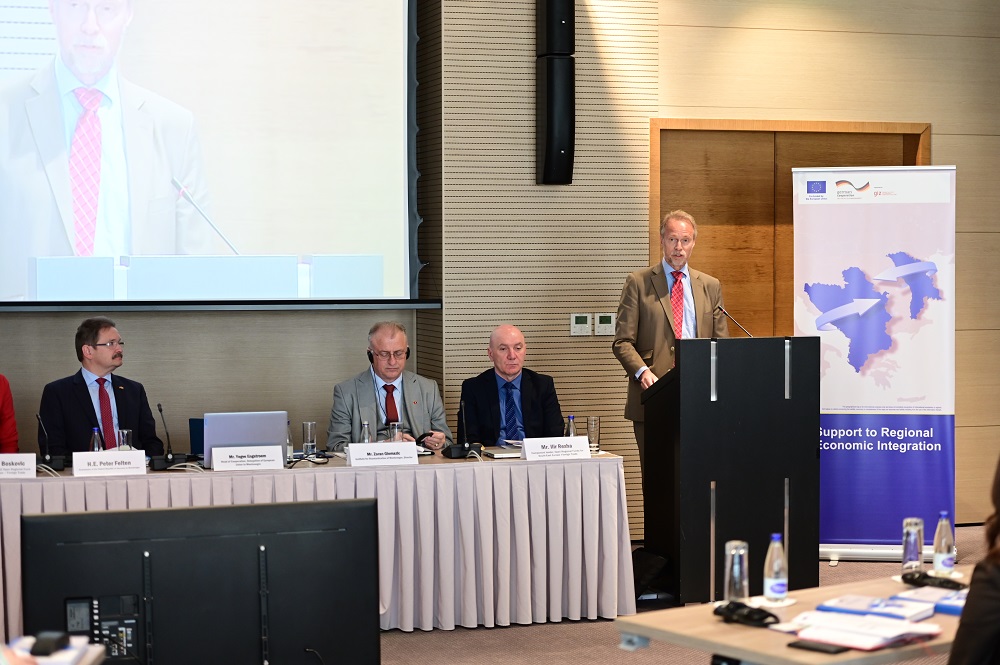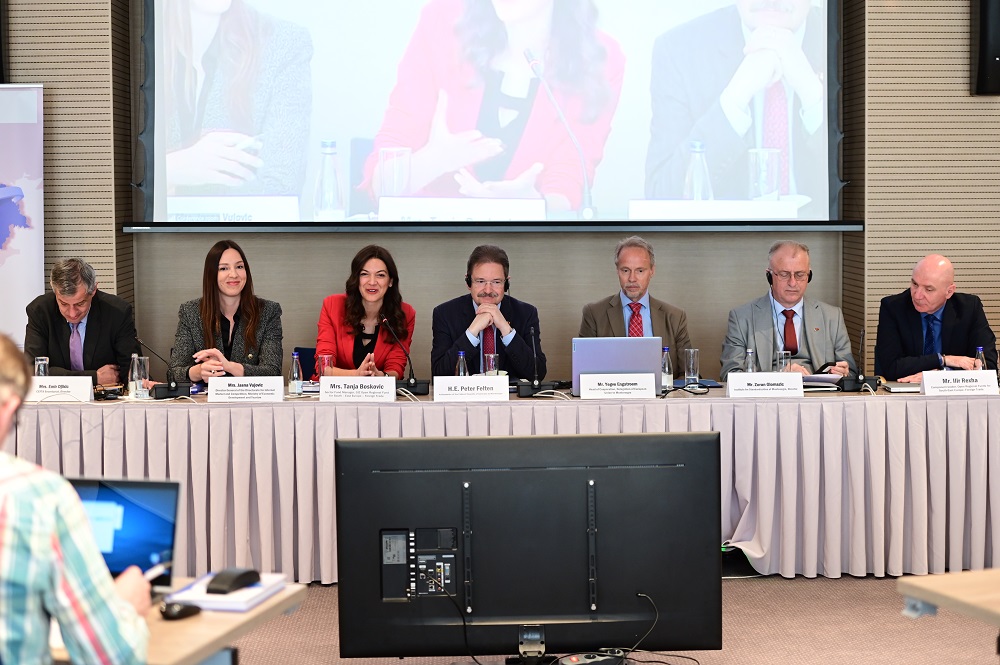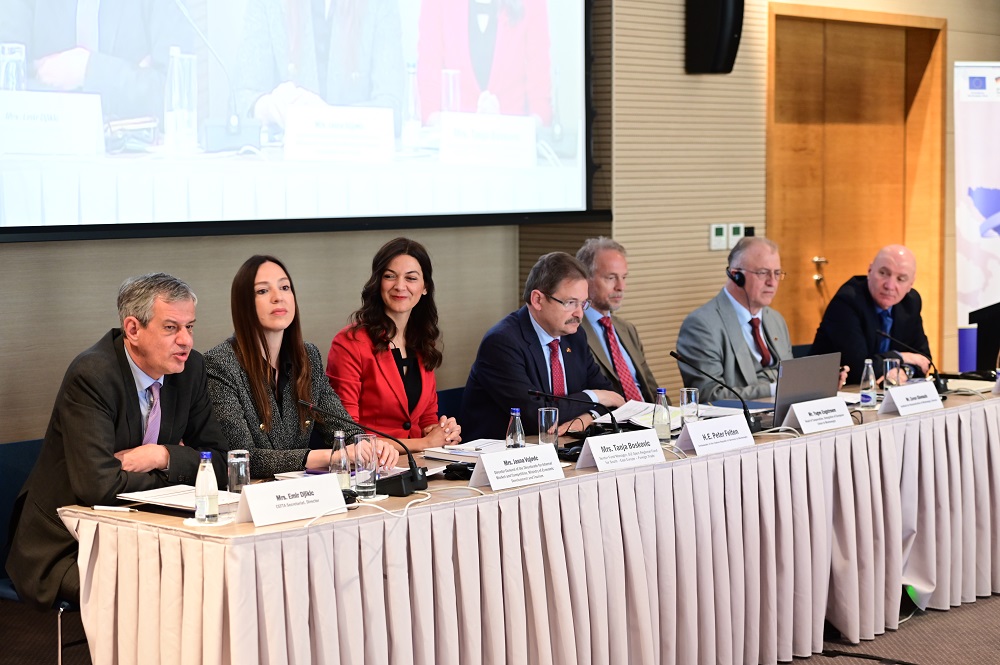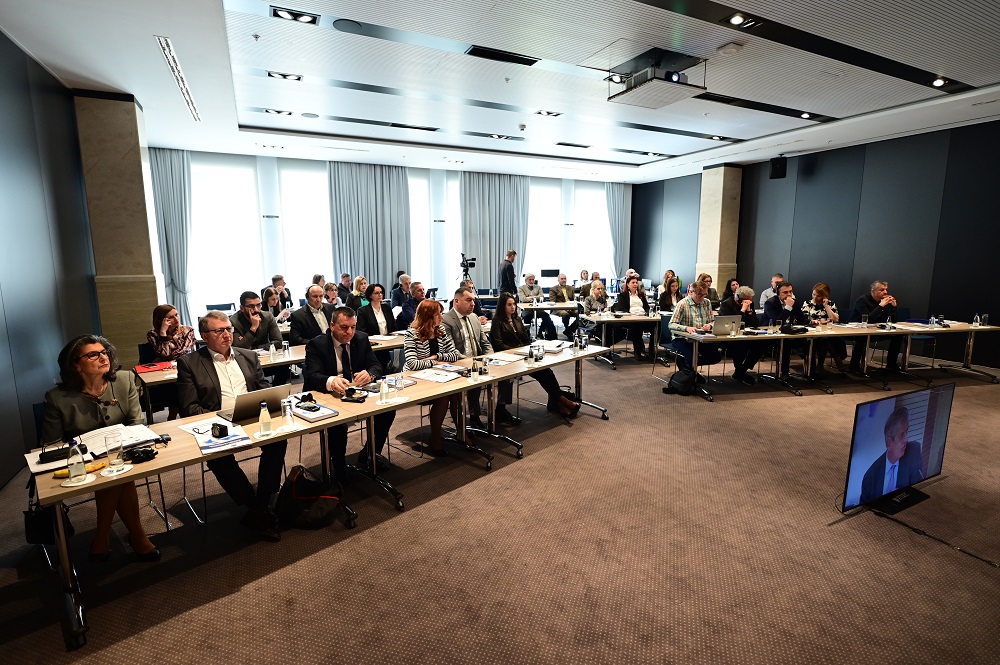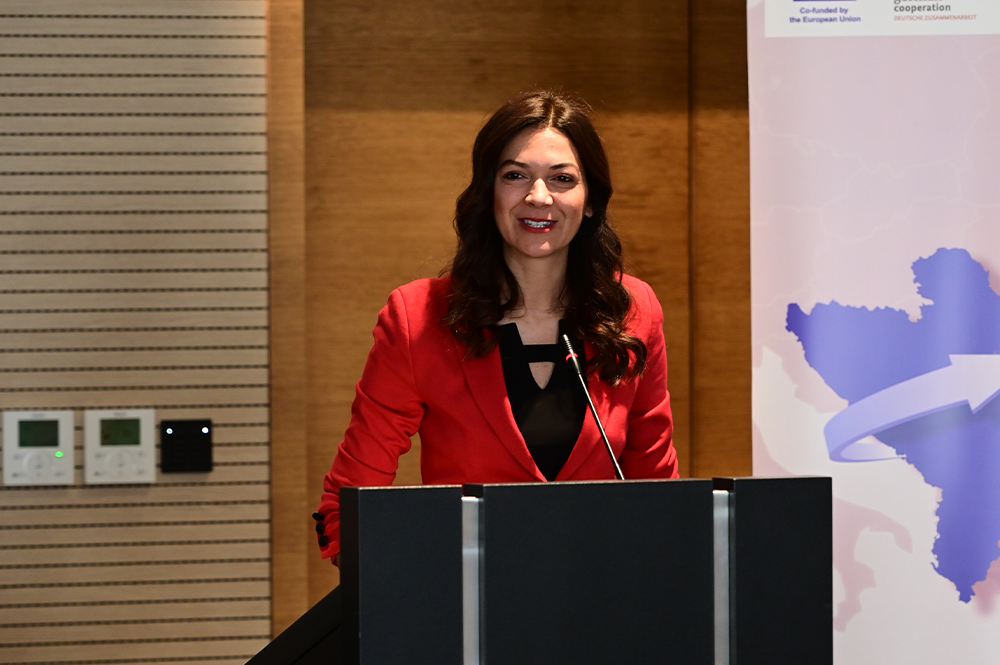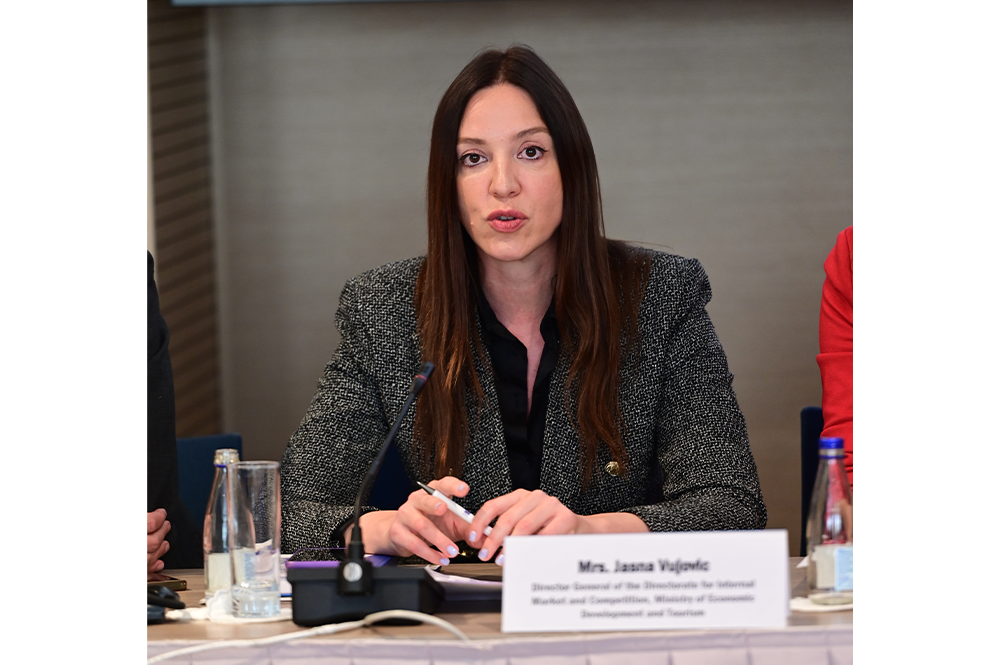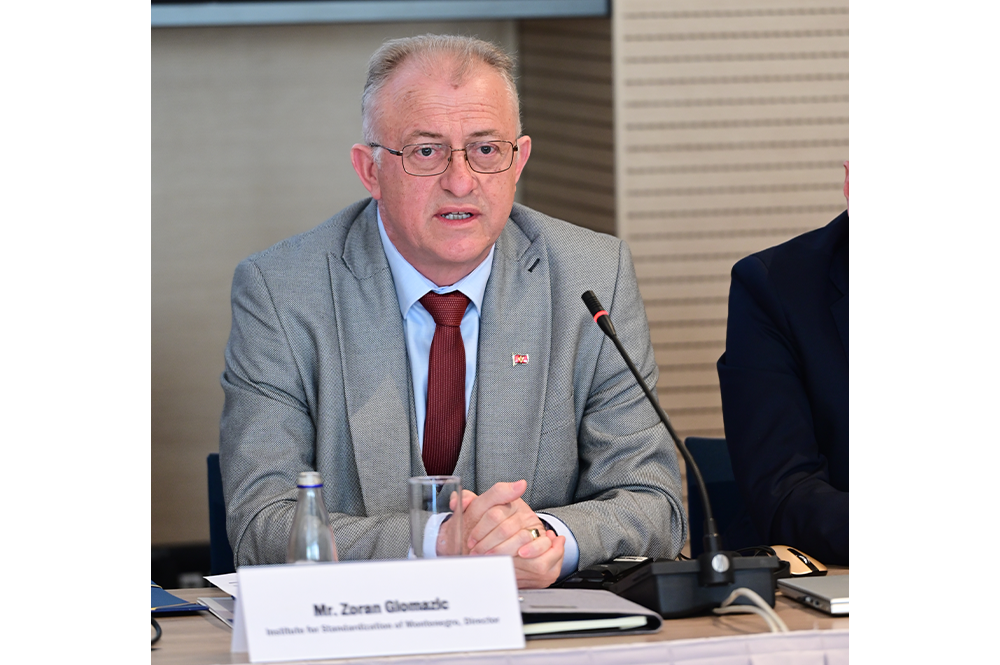Highly developed Quality Infrastructure systems are a prerequisite for the free movement of industrial goods and for enhancing trade within CEFTA markets. Improved market surveillance systems in CEFTA Parties will ensure free competition and consumer protection through the compliance of products that are placed on the markets.
This was assessed at the regional meeting focused on the reforms of the core aspects of the Quality Infrastructure systems in CEFTA Parties and their alignment to the EU acquis, held in Budva, Montenegro. The meeting was organized by the project “EU4Business: Support to Regional Economic Integration, implemented by Deutsche Gesellschaft für Internationale Zusammenarbeit (GIZ), supported by the European Commission and the German Federal Ministry of Economic Cooperation and Development (BMZ).
E. Mr. Peter Felten, Ambassador of the Federal Republic of Germany to Montenegro stated that this project will contribute to foster regional integration in the Western Balkans and prepare the CEFTA Parties and the region for the accession to the European Union. “Harmonized Quality Infrastructure will allow for smooth trade and improved market access across the region and beyond. Manufacturers will have a reliable, and more cost-efficient, business framework across the entirety of CEFTA economies. It will guarantee the safety of the products placed on the markets, and it will strengthen consumer confidence in what they find on the shelves. They will have an increased choice of goods in overall better quality”, he clarified.
Yngve Engstroem, Head of Cooperation at Delegation of European Union to Montenegro emphasized that the regional integration starts with the economy and with the society and that the European Union remains the firm supporter of the efforts within the region to promote regional economic integration including trough The Transport Community, the Energy Community and the Common Regional Market. “The Common Regional Market, structured around the four freedoms while also covering aspects of digital, investment, innovation and industry policy is a catalyst for the deeper regional economic integration. It also represents a stepping – stone towards the European Uion’s single market as it ensures that the integration within the region is based on EU standards and legislation, thereby opening the prospect of integration within the EU”, he stated.
Tanja Boskovic, Sector Fund Manager, GIZ, reminded that this component of the project is designed to provide support to the CEFTA Parties in strengthening core aspects of the quality infrastructure systems in line with the EU acquis with the ultimate goal to strengthen mutual trust in the expertise, knowledge and capacities of all involved institutions. “Quality infrastructure is a crucial element in promoting and sustaining economic development of every economy and a robust quality infrastructure plays an essential role for business, innovation, and trade. Thus, we’re not talking about improving quality infrastructure for its own sake, but as a priority in terms of economic development as well as European integration. Joint efforts are needed to establish and maintain a system aimed at facilitating movement of industrial products across the region and with the EU. The improvement requires very intensive and sustained efforts as some Parties are more advanced than the others and even that multi-speed adoption of EU regulations often create additional obstacles for intra-regional trade, she underlined.
Emir Djikic, Director of CEFTA Secretariat stated: “Building a quality infrastructure system is one of the most important and practical steps in improving the quality of the products and ensuring safety of the consumers. By introducing the EU standards in the CEFTA markets, we want to bring the Parties closer to the EU Single Market, helping them to increase their trade competitiveness, ensure the EU market access and stimulate industrial development – main goals of the Common Regional Market Action Plan.”
Jasna Vujović, Director General of the Directorate for Internal Market and Competition in the Ministry of Economic Development and Tourism, assessed that Montenegro is strongly committed to fulfilling all obligations from the Berlin Process and, when it comes to quality infrastructure, creating a regional market without barriers, while respecting all EU regulations and standards. “Establishing a modern system of quality infrastructure, which is the basis of the free movement of goods, enabled Montenegro to be closer to Europe and its values”, she assessed.
Zoran Glomazić, Director of the Institute for Standardization of Montenegro emphasized that the Institute will gladly perform its obligations and continue with the harmonization of regulations and processes with the EU standards in order to increase the quality of goods and services for its citizens.
During the meeting, which will last until March 30, the main findings of the assessment on the readiness of quality infrastructure institutions (metrology, standardization, accreditation, market surveillance) in CEFTA economies will be discussed among the representatives of all the CEFTA Parties, and the concept of a regional network of these institutions will be presented.


